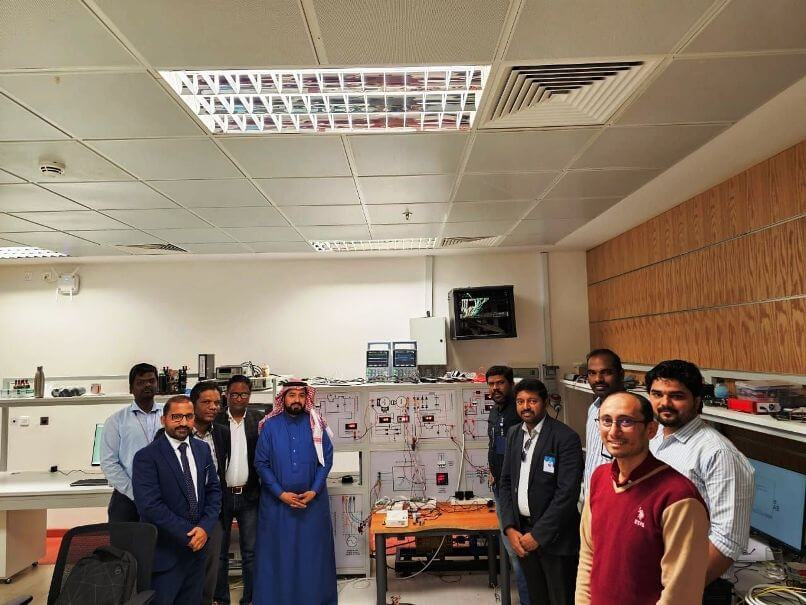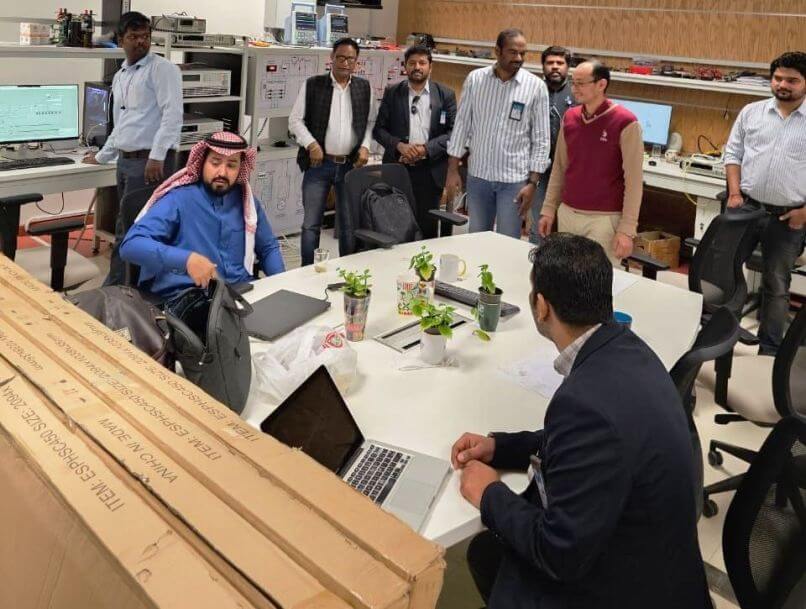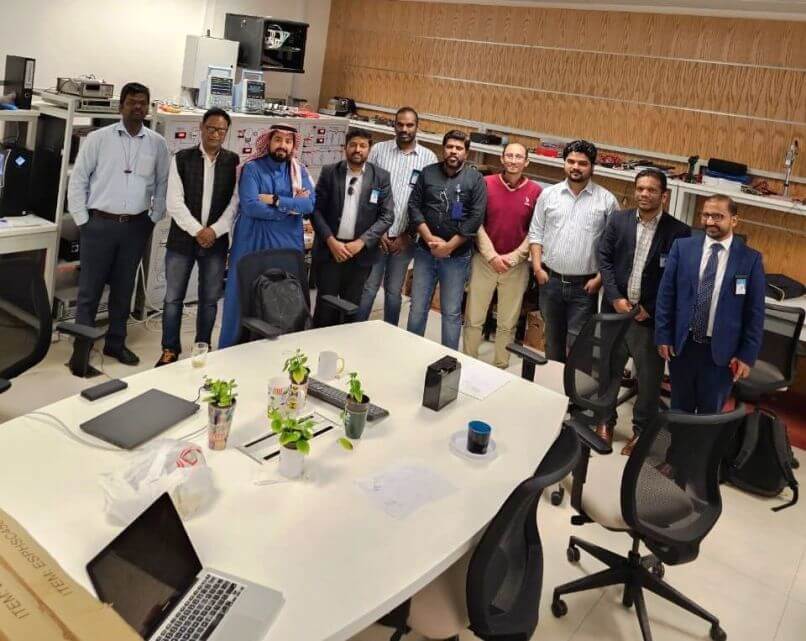Ecosense installed Microgrid system at Prince Sultan University, Riyadh
In addition to providing cutting-edge microgrid technology to institutions and organizations within India, Ecosense has also made a strong effort to expand its reach globally.

In addition to providing cutting-edge microgrid technology to institutions and organizations within India, Ecosense has also made a strong effort to expand its reach globally.
In addition to providing cutting-edge microgrid technology to institutions and organizations within India, Ecosense has also made a strong effort to expand its reach globally. With a presence in countries such as Saudi Arabia, UAE, Australia, England, Panama, and Vietnam. Ecosense has become a trusted name in the field of renewable energy solutions. Through its international partnerships and collaborations, Ecosense is able to share its expertise and innovative technologies with a wider audience, furthering its mission to promote sustainable energy practices and reduce carbon emissions on a global scale. By emphasizing its global outreach, Ecosense demonstrates its commitment to promoting environmentally conscious solutions on a global scale.
The installation of the Microgrid system at Prince Sultan University is just one example of Ecosense's dedication to providing cutting-edge renewable energy solutions. The company's Microgrid lab uses sources such as PV Emulator, Wind Turbine Emulator, and Fuel Cell and Battery bank for storage, providing researchers with the ability to study and analyse the behaviour of a microgrid system under various conditions.
The modular and scalable design of the system makes it easy to add more energy sources, while requiring very little space for installation. Ecosense's Microgrid lab is a grid-connected setup where the output of the DC Microgrid is connected to the main AC grid via a Voltage Source Converter (VSC). The system can also be configured to work as a standalone setup, providing researchers with the flexibility to conduct experiments according to their specific needs.
The Microgrid lab offers a variety of research options, from the ability to track the torque-speed and power-speed characteristics of a wind turbine at different wind speeds and pitch angles, to the comparative analysis of different PV panels using a PV emulator. The system allows for the continuous sensing of grid-side voltage and currents, providing an opportunity to implement advanced control algorithms to control the behaviour as per grid conditions.
One
of the key advantages of the Ecosense Microgrid system is its modular and
scalable design. This allows for the addition of more energy sources as needed,
making it easy to expand the system to meet the changing needs of the campus
over time. The system is also rigorously tested and can work continuously
without switching off, providing a reliable source of research equipment for
the university.
The Ecosense Microgrid system requires very little space for installation, making it an ideal solution for the limited space available on a university campus. In addition, the system is designed for easy maintenance and comes with an illustrated experiment manual detailing every wiring connection to be made. This makes it easy for university staff to perform routine maintenance and repairs without the need for extensive technical expertise.
The Microgrid system installed at Prince Sultan University is also an open-source system, allowing researchers and innovators to reprogram, rewire, and revise the system to carry out their research goals. The system provides an opportunity for researchers to explore different control techniques for smart grid implementation, conduct a reliability analysis of the Microgrid system, and investigate the use of advanced energy management systems (EMS) to optimize the scheduling of energy sources, storage, and loads.
With
its global outreach and commitment to promoting sustainable energy practices,
Ecosense is well-positioned to continue leading the way in the field of
renewable energy solutions. Its Microgrid lab at Prince Sultan University
serves as a testament to the company's dedication to innovation and its mission
to reduce carbon emissions and promote a more sustainable future.

The faculty at Prince Sultan University, Riyadh was overjoyed with the installation of the Microgrid Lab which was one of the first in the region and they are committed to make it even smarter.
